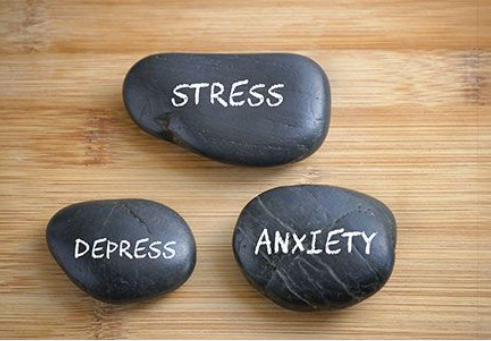Millions of individuals each year are affected by anxiety and depression. Inpatient programmes can work, but they are not always feasible. Many individuals cannot leave their employment, school, or family responsibilities to undergo full-time treatment and because of this, outpatient treatment is crucial. An intensive outpatient program in Connecticut enables individuals to obtain organised, consistent therapy while juggling everyday life. This balance makes treatment more practical and accessible, allowing patients to receive support without having to put everything on hold.
What Is an Intensive Outpatient Program?
Comprehensive treatment without overnight stays is available in an intensive outpatient program (IOP). Group and individual therapy are usually offered many times a week, in which these programs teach problem-solving skills, relapse prevention, and provide consistent professional support.
IOPs bridge the gap between inpatient hospitalisation and weekly therapy. They provide individuals with structure and responsibility while allowing them to work, study, and care for their families. Many find this approach to be a balance between supervision and freedom.
Why Choose Outpatient Treatment for Anxiety and Depression?
Outpatient care provides meaningful benefits for people coping with anxiety and depression. It allows patients to live at home while attending several structured sessions each week, striking a balance between treatment and daily life.
Programs often include evidence-based therapies such as cognitive behavioural therapy (CBT) and dialectical behaviour therapy (DBT), which are proven to help with mood disorders. Group sessions also foster a sense of community, providing individuals with the opportunity to share their experiences and receive support from others.
With regular check-ins and consistent guidance, outpatient care builds accountability and provides the stability needed for long-term healing and recovery.
How Effective Is an Intensive Outpatient Program?
Outpatient programs may be helpful for mild to moderate depression and anxiety, according to research and clinical experience. When followed continuously, results typically surpass those of inpatient care.
Common benefits reported by individuals in an intensive outpatient program in Connecticut include:
- Fewer symptoms of anxiety and depression
- Improved ability to manage stress and daily challenges
- Stronger coping skills and emotional awareness
- Reduced risk of relapse for those leaving inpatient treatment
- Better relationships and overall quality of life
Outpatient programs give many individuals the skills they need to achieve sustainable stability. Success varies based on motivation and family circumstances.
Who Benefits Most From Outpatient Programs?
People who require organised support but not 24/7 monitoring can choose outpatient care. Individuals who suffer from mild to moderate anxiety or depression that affects everyday life but does not necessitate hospitalisation are often advised to try it.
Recovery continues outside of regular sessions; therefore, a secure and supportive home setting is crucial. Actively attending therapy and practising coping methods typically yields the most significant benefits.
IOPs are a frequent step-down program following inpatient treatment. Patients can maintain their progress, limit the risk of relapse, and gradually return to their regular routines throughout this transition. Many CT residents choose intensive outpatient programs for structure, flexibility, and independence for long-term rehabilitation.
Limitations of Outpatient Care
While outpatient treatment is valuable, it is not the right solution for everyone.
- People experiencing severe symptoms or suicidal thoughts often need inpatient stabilisation first.
- A safe and supportive home environment is essential, as recovery is often more challenging in stressful or unsafe situations.
- Outpatient care requires commitment. Consistent attendance and active participation are key to progress.
Recognising these limitations helps providers match each person with the right level of care.
Outpatient vs. Inpatient Treatment: Key Differences
IOPs enable patients to remain at home while undergoing weekly treatment. They are appropriate for mild to moderate symptoms that need structure without significant disruptions. Outpatient treatment is lower in cost and emphasizes skill maintenance.
Inpatient programs on the other hand, provide 24-hour care and are recommended for individuals with severe symptoms or those experiencing an emergency. Both treatments are successful, but the optimum one depends on needs, support systems, and level of care needed.
Real-World Impact of Intensive Outpatient Programs
For many people, IOPs serve as a turning point in recovery. With the right mix of flexibility and structure, patients often report:
- Improved ability to return to work or school
- Stronger, healthier relationships with family and friends
- Increased confidence in handling triggers and stressful situations
- A solid foundation of coping skills they can use for life
By combining professional guidance with personal responsibility, outpatient programs enable individuals to move beyond mere survival and toward a life of thriving.
Final Thoughts
Patients struggling with anxiety and depression may benefit from an intensive outpatient program in Connecticut. It combines the structure of inpatient treatment with the flexibility of outpatient care, making it ideal for busy individuals who require substantial support. Outpatient treatment may be appropriate if you or a loved one need to balance daily responsibilities while receiving the necessary help with your mental health struggles.
Contact us today to learn more about intensive outpatient programs and begin the journey toward lasting recovery.
Sources:
- https://www.research.va.gov/topics/mental_health.cfm
- https://www.cdc.gov/nchs/products/databriefs/db444.htm
- https://pmc.ncbi.nlm.nih.gov/articles/PMC6889566/

Alexis earned both a B.S. in Psychology and a B.S. in Family and Child Sciences from Florida State University and an M.A. in Marriage and Family Therapy from the University of San Diego. She holds licenses in Marriage and Family Therapy in Florida, Connecticut, and Massachusetts and is also a member of the American Association for Marriage and Family Therapy (AAMFT).
Alexis works with families, couples, children, and groups and also has a sub-specialty in addiction and recovery. She utilizes an integrated, systemic approach to counseling; empowering people to define what is not working for them in their lives and to discover the possibilities for making life work. In doing this, clients are guided towards identifying their strengths, accessing their resources, tapping into their potential for success, and taking action toward achieving their desired goals.
Alexis also has extensive experience in the administration of behavioral health organizations. She has developed, built, and supervised several facilities encompassing all levels of care while leading them through state licensing and The Joint Commission accreditation process.

